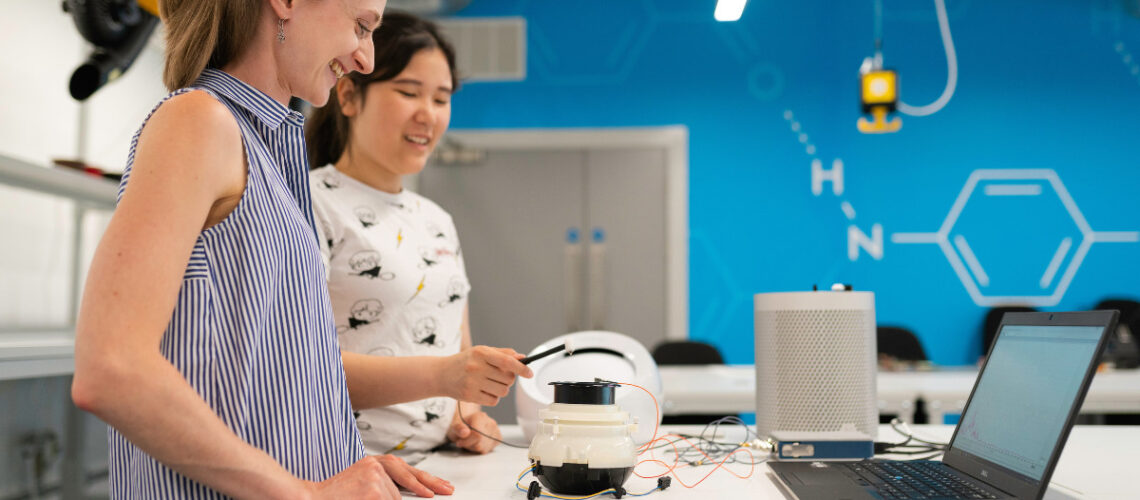In an era where technological advancements are not just possibilities but realities shaping our daily lives, the future of work is undergoing a significant transformation. Emerging technologies such as Artificial Intelligence (AI), machine learning, and automation are redefining how industries operate, creating new career paths while phasing out others. This evolution is prompting a pivotal question for both current students and seasoned professionals: how can one remain relevant and competitive in a rapidly changing job market?
The Impact of Technology on Various Industries
As we stride into the future, it’s becoming increasingly evident that no sector is immune to the touch of technology. Industries like manufacturing, healthcare, finance, and even education are witnessing a paradigm shift in their operational processes due to the integration of AI and automation. For instance, in manufacturing, automation has revolutionized production lines, enhancing efficiency but reducing the need for manual labor. Similarly, in healthcare, AI-driven analytics are being used for diagnostics and patient care, opening new avenues in medical research and treatment.
The impact of these emerging technologies is dual-edged. While they bring efficiency and innovation, they also pose challenges in terms of workforce displacement and the need for new skill sets. It’s crucial for job seekers to understand these changes and adapt accordingly.
Emerging Career Paths and Opportunities
With every technological advancement, new career paths emerge. Data science, AI engineering, and cybersecurity are fields that have experienced significant growth due to the rise of digital data and the need to protect it. These careers require a deep understanding of technology and its applications, a skill set that is becoming increasingly valuable.
As automation handles more repetitive tasks, there’s a growing demand for roles that involve human creativity and emotional intelligence, such as user experience design, digital content creation, and technology ethics. These roles not only require technical know-how but also a strong grasp of human behavior, ethics, and design thinking.
Preparing for the Shift: Education and Skill Development
Adapting to these changes requires a proactive approach to education and skill development. Institutions like Pures College of Technology are at the forefront of this educational evolution, offering courses and programs designed to equip students with the skills needed in a tech-driven job market. Emphasizing on STEM (Science, Technology, Engineering, and Mathematics) education, as well as incorporating AI, machine learning, and data analytics into various programs, are steps in this direction.
However, it’s not just technical skills that matter. Soft skills such as problem-solving, critical thinking, adaptability, and lifelong learning are equally important. As the job landscape changes, the ability to learn and adapt to emerging technologies will be a crucial determinant of career success.
Navigating the Tech-Driven Job Market
For job seekers, staying informed about the latest technological trends and their impact on different industries is key. Platforms such as LinkedIn, industry webinars, and tech conferences can provide valuable insights into emerging technologies and job market trends. Additionally, networking with professionals in desired fields and seeking mentorship can offer practical guidance and open doors to new opportunities.
Professionals already in the workforce must embrace the culture of continuous learning. This may involve pursuing further education or certification courses in relevant tech fields. For example, courses in AI, data analytics, or cybersecurity offered by institutions like Pures College of Technology can provide the necessary knowledge and credentials to transition into these emerging sectors.
The Role of Employers and Institutions
Employers also play a critical role in shaping the future of work. By providing training and development programs, they can help their workforce adapt to new technologies and processes. Additionally, creating a culture that values innovation, continuous learning, and adaptability will be crucial in retaining talent in a changing job market.
Educational institutions like Pures College of Technology need to continuously evolve their curricula to align with industry needs. This involves not only integrating new technologies into their teaching methodologies but also collaborating with industry leaders to ensure that the skills being taught are relevant and applicable.
The future of work, reshaped by AI, machine learning, and automation, presents both challenges and opportunities. It necessitates a paradigm shift in how we view education, skill development, and career planning. As we embrace this new era, adaptability, continuous learning, and a proactive approach to skill development will be the keys to success. Institutions like Pures College of Technology are playing a pivotal role in preparing the workforce for this future, ensuring that their graduates are not just ready but also resilient and adaptable in the face of technological advancements. As we navigate this evolving landscape, staying informed, adaptable, and continuously upskilling will be the guiding principles for thriving in the future job market.

